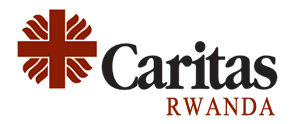World Savings Day, celebrated globally on 31 October, emphasizes the importance of saving and financial literacy for individuals and communities alike. In Rwandan rural areas like Nyabihu, Burera, and Rulindo, where access to financial services is limited, SILC groups are crucial for improving household nutrition and building economic resilience. In honor of this day, USAID Gikuriro Kuri Bose Program has provided financial and technical support to highlight and strengthen the role of rural savings groups in promoting better nutrition and overall well-being.
Small Savings, Big Impact: Savings Groups as Catalysts for Better Nutrition and Community Resilience
In rural communities, SILC groups established with the support by USAID GKB are instrumental in creating access to funds that allow families to make small but vital investments in their nutrition and overall health. Members pool their savings, giving each member an opportunity to borrow, invest in nutritious food, and pay for essential health and childcare expenses. By enhancing financial resilience, SILC groups help ensure that families have access to nutritious food year-round, which is especially critical in times of economic downturns.

USAID Gikuriro Kuri Bose Support in Action
In partnership with local leaders and relevant stakeholders, USAID Gikuriro Kuri Bose provides both financial and technical support through capacity building of groups’ leaders and members in financial literacy guiding group members in efficient savings practices, budgeting, and investing in nutrition oriented income-generating activities while connecting groups with market opportunities. This combination of financial and technical assistance amplifies the group’s impact on local food systems, allowing them to grow nutrient-rich foods and further improve household nutrition.
Celebrating Success and Looking Forward
This year, USAID Gikuriro Kuri Bose program’s contribution to World Savings Day highlights the success stories from several SILC groups that have transformed their communities through financial empowerment and enhanced nutrition. By celebrating their achievements, we hope to inspire further commitment to sustainable food systems, financial resilience, and child-focused health and development initiatives. The impact of rural savings groups goes beyond financial savings. Moving forward, USAID Gikuriro Kuri Bose remains committed to supporting these groups with resources and training that amplify their positive impact on health and nutrition. This World Savings Day, we celebrate the transformative role of savings groups and look forward to continued collaboration for a healthier, more prosperous future.





